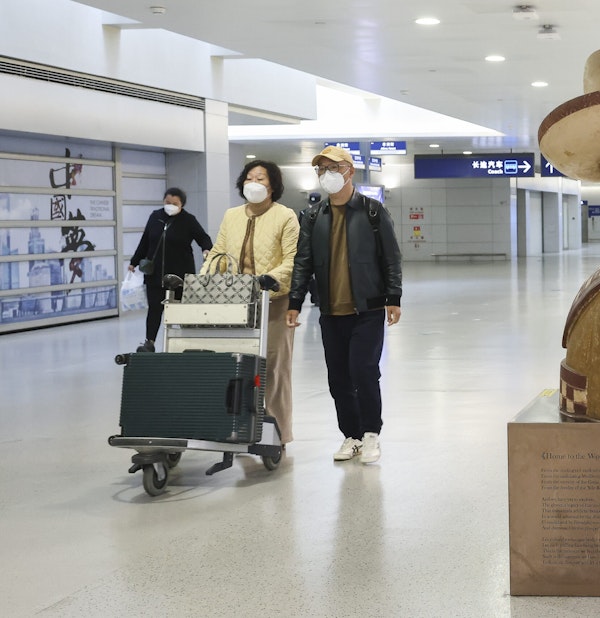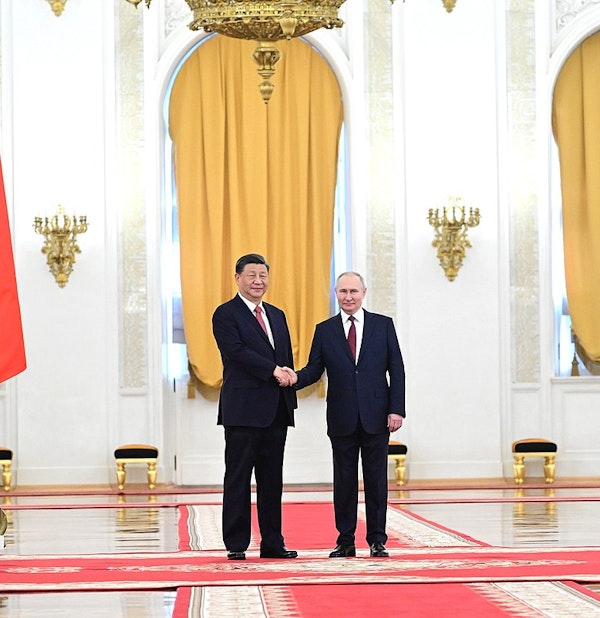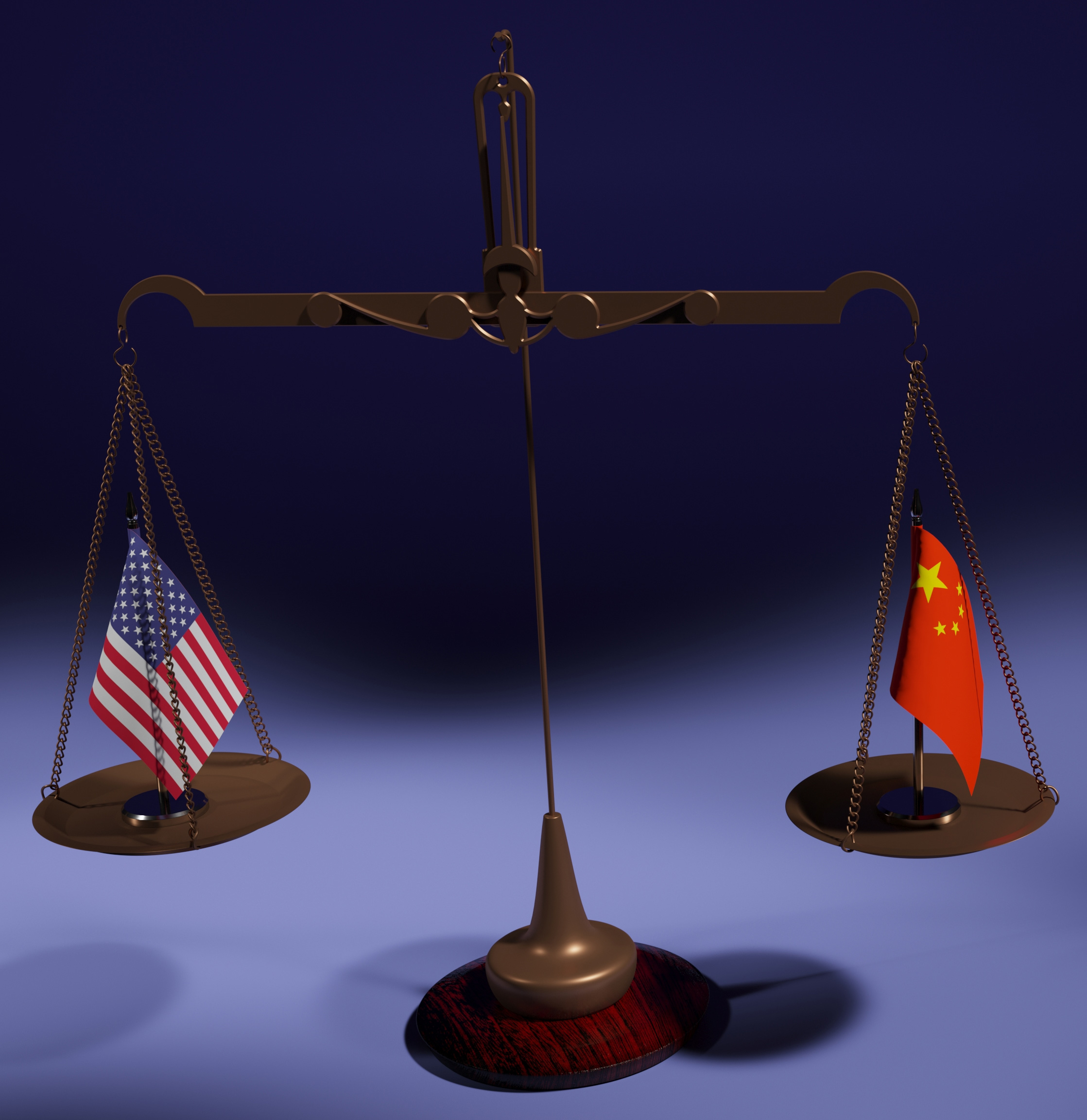Can China recover from zero-Covid?
China is trying to reopen. But President Xi Jinping is undermining his own attempts to rebuild the economy.
 Pudong International Airport March 2023 in Shanghai, China. (Photo by Zhe Ji/Getty Images)
Pudong International Airport March 2023 in Shanghai, China. (Photo by Zhe Ji/Getty Images)
As I made my way toward the departure gate at Shanghai’s airport recently, I was struck by the fact that, several months after China ended its “zero-Covid” policy and reopened its borders, two-thirds of airport shops remained closed. When I asked a salesperson about the situation, she had a simple explanation: “There is just not much foot traffic here.”
The airport’s emptiness was not an isolated fact but a sign of a much bigger problem facing China as it tries to recover from the damage caused by the pandemic and the world’s strictest government-mandated shutdown. President Xi Jinping may have pledged to “firmly pursue a strategy of mutually beneficial opening-up,” but a survey conducted by the American Chamber of Commerce in China in April found that more than a quarter of U.S. firms are now considering other countries over China when making their investment decisions – up from 6% last November – and large companies such as Apple are planning to exit China and move elsewhere. Few international students have returned to the country, and their number is unlikely to increase markedly anytime soon. Despite a sharp uptick in overall economic activity – China’s GDP grew by 4.5% year-on-year in the first quarter of 2023, up from 2.9% in the previous quarter – China’s exports and imports in January and February actually fell compared with the same period in 2022. (They jumped 14.8% year-on-year in March, but that was largely the result of increased exports to Southeast Asia; exports to advanced economies like the United States remained flat or declined.) In April, China’s official manufacturing index, known as the PMI, fell to 49.2, marking the lowest level since late last year.
The actions of Washington and Beijing are making trade, travel, and people-to-people exchanges difficult – and China is often acting in ways that undermine its supposed commitment to reopening.
What explains China’s slower-than-expected recovery? While a global economic slowdown and fears of future, draconian lockdowns share some of the blame, China’s reopening is suffering from another overlooked problem: Beijing’s intensifying geopolitical rivalry with Washington. The Biden Administration has formally declared China “America’s most consequential geopolitical challenge,” and with good reason. But the actions of both sides are making trade, travel, and people-to-people exchanges difficult – and China is often acting in ways that undermine its supposed commitment to reopening. In January, for example, when COVID cases in China were surging following the end of the lockdown, the United States imposed testing requirements on all travelers arriving from China despite the lack of evidence that such measures are effective in limiting cases or preventing the emergence of new variants. Denouncing Washington’s move as unscientific and excessive, Beijing responded by imposing a mandatory 48-hour PCR testing requirement for all inbound visitors. But when the United States lifted the requirement two months later, China did not reciprocate until the end of April.
 United States' President Joe Biden and China's President Xi Jinping at the G20 Summit in Nusa Dua, Indonesia in November 2022. (Photo by SAUL LOEB/AFP via Getty Images)
United States' President Joe Biden and China's President Xi Jinping at the G20 Summit in Nusa Dua, Indonesia in November 2022. (Photo by SAUL LOEB/AFP via Getty Images)
China already is suffering the consequences of such behavior. To cite one representative statistic: In March, eight U.S. and Chinese airlines were scheduled to fly 96 round trips on 11 routes between the two countries. That’s down a staggering 93% from 2019, when nine U.S. and Chinese airlines flew a combined 1,460 trips on 61 routes. The two countries have held negotiations over increasing nonstop air service between them, but China’s stance on the war in Ukraine, and the general deterioration of the bilateral relationship, have gotten in the way. U.S. airlines, which are required to avoid flying over Russia – a requirement that’s raising their costs by 20% – have complained that Chinese carriers, which do fly over Russia, have an unfair advantage. As a result, several U.S. senators have begun arguing that the Biden Administration should force Chinese (and other non-American) carriers to stop flying over Russia en route to the United States.
In the 1980s, when China opened its doors to the West, the United States was happy to reciprocate and also gave it access to U.S. markets and cutting-edge American technologies. Today, however, China’s assertiveness has led to a bipartisan consensus in the United States that engagement was a mistake. The United States has begun working to reduce its dependence on Chinese products and curb China’s access to advanced technologies. President Joe Biden has not only retained most of the tariffs imposed on China by President Donald Trump but also broadened the restrictions on U.S. shipments to China of semiconductors and semiconductor manufacturing equipment. In late January, four Republican senators introduced a bill to revoke China’s permanent normal trade relations status. Washington has also increased its scrutiny of Chinese investments in the United States. In South Carolina, lawmakers are pushing to bar Chinese citizens and companies from buying real estate there. No wonder President Xi recently complained that “Western countries led by the United States have implemented all-around containment, encirclement, and suppression of China, which has brought unprecedented severe challenges to our country’s development.
For almost three decades following Mao Zedong’s death in 1976, China sought to integrate itself into the international system and to avoid a showdown with the United States. Today, however, President Xi’s China is openly trying to bend other countries and international institutions to suit its own interests.
Chinese leaders remain committed to reopening – at least on the rhetorical level. On March 31, Premier Li Qiang declared, “No matter how the world situation may evolve, we will stay committed to reform, opening-up, and innovation-driven development.” But China has failed to back such pledges with actions that might allay U.S. fears of Beijing’s behavior and thus persuade Washington to cooperate. For almost three decades following Mao Zedong’s death in 1976, China sought to integrate itself into the international system and to avoid a showdown with the United States. Its low-key and pragmatic foreign policy helped China win support throughout the West. Today, however, President Xi’s China is openly trying to bend other countries and international institutions to suit its own interests. The massive Belt and Road Initiative, for example, has been structured in ways designed to reshape global norms and rules on aid, infrastructure, and logistics. Recent remarks from President Xi suggest that he is focusing on national security and preparing China for war. And his March visit to Russia highlighted his determination to use Beijing’s deepening ties with Moscow to help counterbalance U.S. dominance.
President Xi’s reopening agenda may still rely on Western investment and technologies, but China is increasingly shutting itself off from the world. Beijing has instructed government agencies and state firms to dump foreign computer hardware and operating systems, reduced the amount of English taught in public education, and banned foreign teaching materials, including textbooks and classic novels, from elementary and middle schools. Beginning on April 1, Beijing also began limiting access for American universities and research institutes to the China National Knowledge Infrastructure, the largest academic database in the country. While the government says it welcomes overseas investment, foreign companies in China are facing a growing number of probes related to national security, anti-corruption, and other issues.
 President Xi Jinping meets with President Vladimir Putin at the official welcoming ceremony in the Grand Kremlin Palace in Moscow in March 2022. (Photo courtesy of Presidential Executive Office of Russia via WikiCommons)
President Xi Jinping meets with President Vladimir Putin at the official welcoming ceremony in the Grand Kremlin Palace in Moscow in March 2022. (Photo courtesy of Presidential Executive Office of Russia via WikiCommons)
Chinese leaders may view such moves as a legitimate response to Western attempts to contain China. But they are undermining China’s claims to be serious about reopening – thereby deepening the distrust between the two sides and further justifying U.S. efforts to decouple from or limit dependence on China. This downward spiral will hurt China economically, but it could have security implications, too. Not only will the confrontation reduce the United States’ economic influence on China but an angry and isolated China could become much more unpredictable and dangerous.
To prevent this outcome, Chinese leaders should tone down their defiant and anti-American rhetoric. They should also scrap measures that hinder exchange, communication, and understanding between the two nations. Washington, meanwhile, should try to compartmentalize the harmful aspects of geopolitical competition while carving out more space for cooperation with Beijing. It should pursue détente with China, rewarding any positive changes Beijing makes while encouraging cooperation in areas such as people-to-people exchange and public health. Such measures would not only evince an American sincerity and flexibility in its China policy but also give Chinese leaders a continued stake in improved U.S.-China relations.
The Catalyst believes that ideas matter. We aim to stimulate debate on the most important issues of the day, featuring a range of arguments that are constructive, high-minded, and share our core values of freedom, opportunity, accountability, and compassion. To that end, we seek out ideas that may challenge us, and the authors’ views presented here are their own; The Catalyst does not endorse any particular policy, politician, or party.


